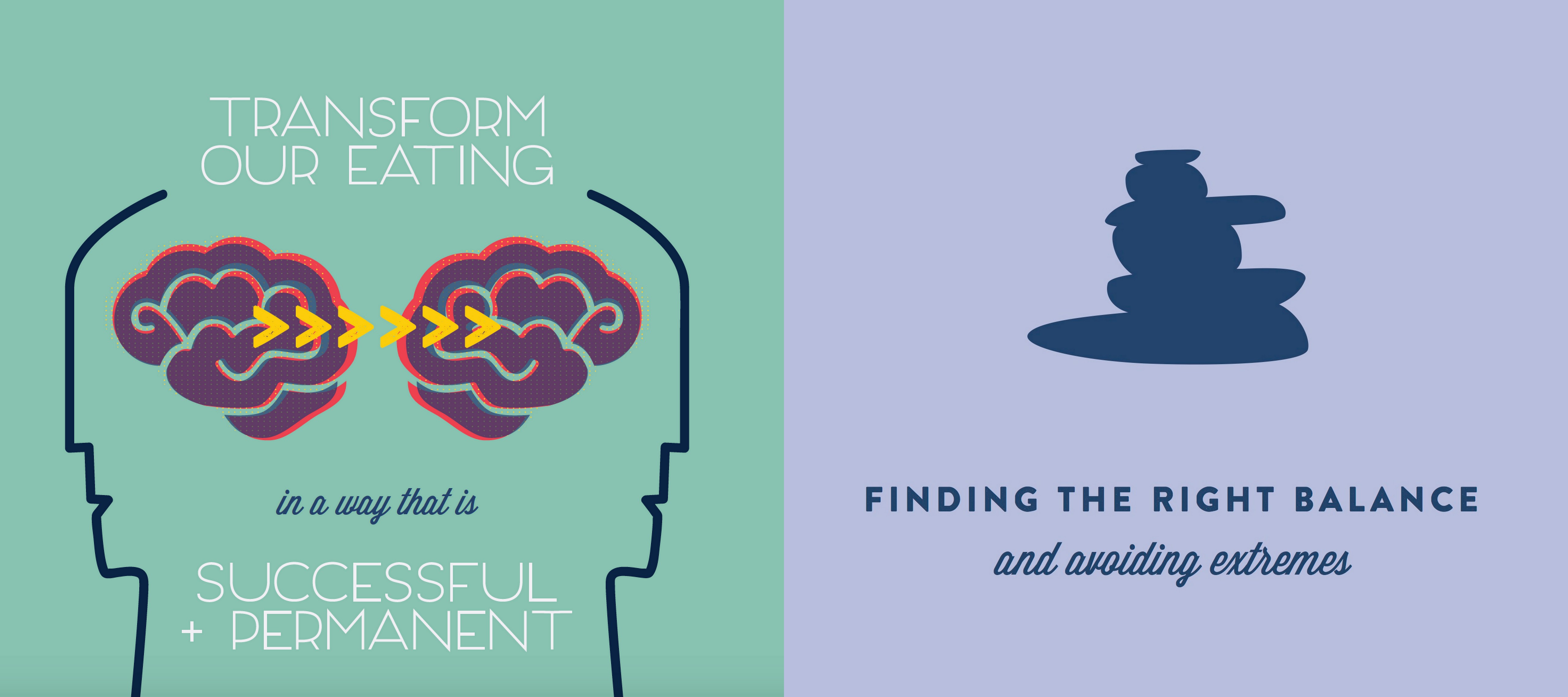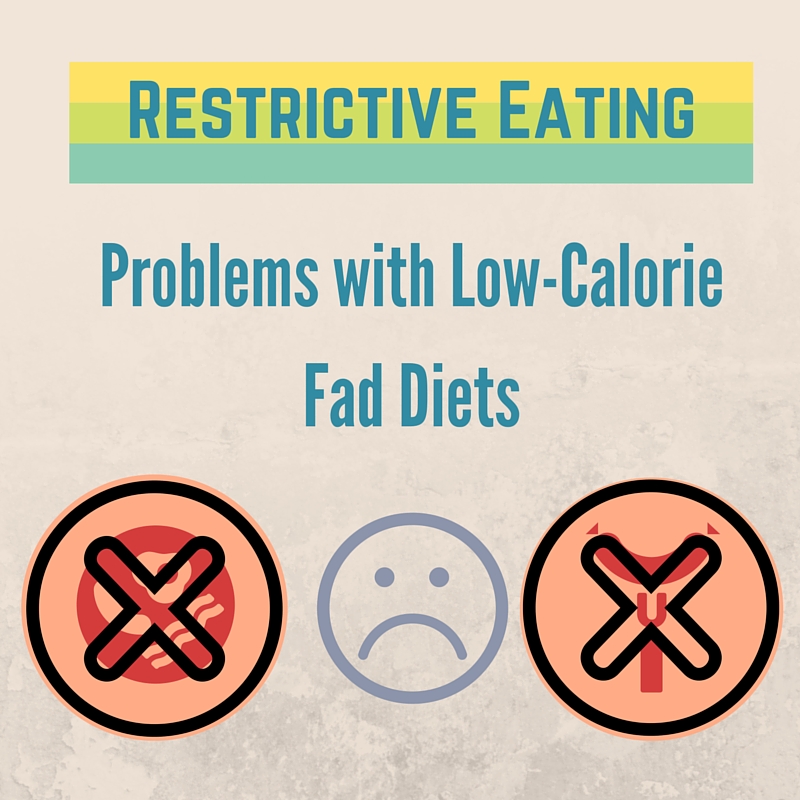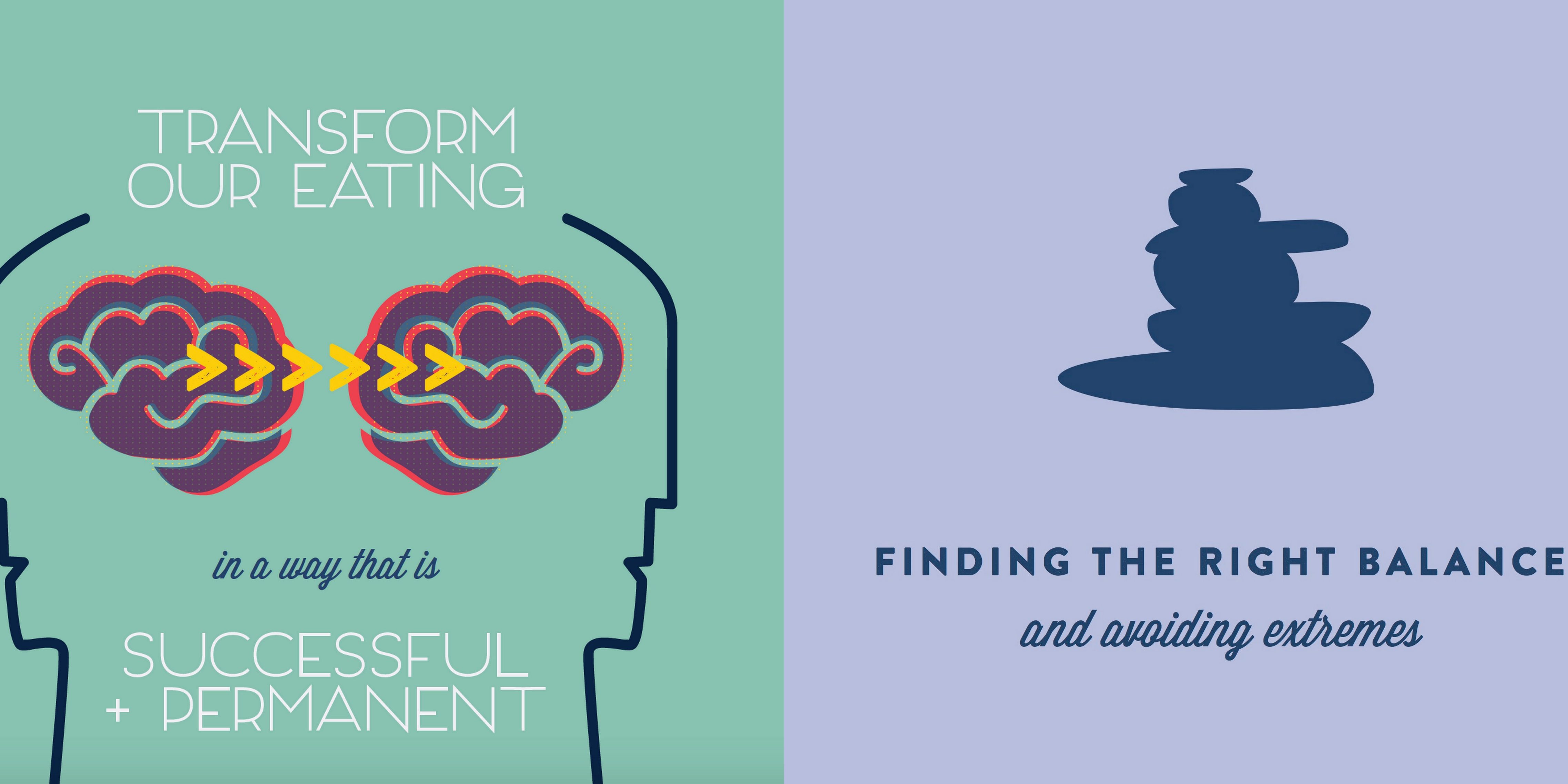 There are many popular low-calorie or restrictive diets out there. However, restrictive eating practices stemming from a desire to control health or weight are very rarely based on an actual understanding of nutrition and its effects on the body. This has lead to a mess of fad diets and dangerous eating practices. Restrictive, low-calorie fad diets are problematic because they are not only physically unhealthy, but also mentally unhealthy. These practices harm the body’s metabolism and may lead to compulsive and self-destructive behaviors.
There are many popular low-calorie or restrictive diets out there. However, restrictive eating practices stemming from a desire to control health or weight are very rarely based on an actual understanding of nutrition and its effects on the body. This has lead to a mess of fad diets and dangerous eating practices. Restrictive, low-calorie fad diets are problematic because they are not only physically unhealthy, but also mentally unhealthy. These practices harm the body’s metabolism and may lead to compulsive and self-destructive behaviors.

Placing unreasonable restrictions on your diet won’t get you very far. Not only will you have trouble losing weight, but you’ll also be exposed to physical and psychological health risks.
What Is Restrictive Eating?
New perspectives are challenging the current diagnostic protocols in America surrounding eating disorders. The categories of anorexia nervosa and bulimia nervosa do not cover the full range and variety of eating disorders that exist in the real world.1 The new concept of restrictive eating disorders within the dietary psychology arena is a move in the right direction. Restrictive eating is a practice in which the diet is strictly limited to a certain number or type of calories in order to promote weight loss. This practice is ineffective and unhealthy.2-3 It is often characterized by a cycle of caloric restriction and relapse (e.g. binging and purging). Restrictive eating disorders occur when there’s an unhealthy psychological component (e.g. an obsession or compulsion) behind the restrictive diet. Orthorexia, for example, is a restrictive eating disorder in which the afflicted person is obsessed with eating “correctly.”1
The Problem with Cheat Meals
The idea of a cheat meal is problematic in and of itself. It implies that good behavior equals suffering, and the only way to stick to your healthy diet and make that suffering worthwhile is by allowing yourself to misbehave every so often. This ingrains a belief that health comes from depriving yourself of the very things that make living worthwhile. The view of authorizing “bad pleasure” behavior by a strict ritual of compensation, is very in line with the outlook held by individuals with other compulsive eating dispositions. Diets such as low-carb and paleo diets often involve setting irrational limitations with the guise of being scientifically valid. This offers a righteous position for the compulsive and unbalanced habits brought about by the dietary outline. The use of cheat meals or the recurrence of breaking down and eating what you “should not” is brought about by the body’s natural desire to correct for the nutritional imbalance brought on by low-calorie foods.4 An unmet drive at the very foundation of the individual’s psyche has been allowed to build until it breaks through in an impulsive and often exaggerated manner. This is no different than any eating disorder of restriction or “purging” and relapse or “binging.”
The Importance of Reasonable Allowance
When it comes to healthy lifestyle conditioning, eating foods that you enjoy is key. Instead of following an overly strict diet punctuated by weekly cheat meals or binging, leave room in your diet for the reasonable allowance of pleasure. By reasonable allowance, I mean using your best judgment to decide when it’s worthwhile to indulge—and not beating yourself up over the occasional indulgence. Occasions for reasonable allowance, such as eating entertaining foods when the situation provides an experience that is worthwhile, will occur naturally.

When dietary habits are formed in line with your tastes and desires, you won’t need a cheat meal.
Try to stop thinking of your diet in terms of good behavior, bad behavior, and the denial of pleasure. Instead focus on learning about the nutritious value of different foods. And find a variety of nutrient-rich foods that you actually enjoy. This type of diet will be rewarding in a way that deters the desire to cheat.
The Importance of Education
The only way to correct the growing metabolic syndromes and related diseases within our population is through education. My role as a coach is not to tell people what to do and what not to do, but rather to educate my clients and my community about how the actions they take will influence their body’s function and development. In this way, I hope to dispel myths and fads and work toward ending the promotion of unhealthy restrictive eating practices.
A Note on Weight Fluctuation
As you begin to improve your diet and your health, remember that healing and normalization of weight take time, and that it is not a linear process measurable by a number on the scale. For more info, check out my previous posts: A Healthier View of Weight Loss and Three Types of Weight Fluctuation. If you’re interested in exploring more topics related to health and nutrition, sign up for my newsletter.
Want to try a new workout method that’s great for spine health, strength and stability, and flexibility? Join me for ELDOA group classes right here in St. Louis!
References
- Uher R, Rutter M. Classification of feeding and eating disorders: review of evidence and proposals for ICD-11. World Psychiatry 11, No. 2 (Jun 2012): 80-92. http://www.ncbi.nlm.nih.gov/pmc/articles/PMC3363377/
- Summermatter S, Mainieri D, Russell AP, et al. Thrifty metabolism that favors fat storage after caloric restriction: a role for skeletal muscle phosphatidylinositol-3-kinase activity and AMP-activated protein kinase. The FASEB Journal 22 (Mar 2008): 774-785. http://www.fasebj.org/content/22/3/774.full.pdf
- Pankevich DE, Teegarden SL, Hedin AD, et al. Caloric restriction experience reprograms stress and orexigenic pathways and promotes binge eating. The Journal of Neuroscience 30, No. 48 (Dec 2010): 16399-16407. http://www.jneurosci.org/content/30/48/16399.full.pdf
- Ackroff K, Sclafani A. Rats integrate meal cost and postoral changes in caloric density. Physiol Behav 60, No. 3 (Sep 1996): 927-932. http://www.ncbi.nlm.nih.gov/m/pubmed/8873271/








1 Comment